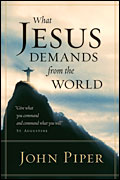Happy Independance Day! I've been watching
The Revolution on The History Channel and I am realizing, perhaps for the first time, what an absolutely amazing piece of history the American Revolution is. Life, Liberty, and the Pursuit of Happiness...romantic ideas to be sure, and I am grateful to live in a country that has provided me with them. I am also grateful beyond words to those who came before me who have worked in many different ways to make sure that I had freedom and liberty when I arrived on the scene. Yet, America is far from perfect, and I hope we would not confuse patriotism with naivete. I would also hope that all the saints would remember that ultimately our citizenship is in heaven, and not in America. The American Revolution was certainly a glorious thing, but its glory does not even hold a candle to The Revolution begun by Jesus...The Revolution of love, humility, holiness, peace, reconcilliation, compassion, justice, truth, and mercy...The Revolution that marches on still to this day.
Also, as I think about my homeland, my thoughts turn toward the spiritual dynamic of America, particularly the American Church. There is, without a doubt, much out of order in the church of our homeland... materialism, churches that are run more like businesses, a straying away from holiness and discipleship, an ever increasing abandonment of truth, ears deaf to the plight of the poor and downtrodden, and a very hollow and shallow sense of awe and worship. Yes indeed, there is much work at hand for any American saint who has eyes to see, and yet the cause is not hopeless. There are many voices crying in the wilderness who are swimming upstream for the causes of Glory, truth, compassion, holiness, and humility: John Piper, Matt Chandler, Mark Driscoll, Justin Taylor, Steve McCoy, Al Mohler, Mark Dever, Franklin Graham, Beth Moore, Tim Keller, etc., etc. I could go on for quite a bit longer, but I'll spare you the lists and get to the point. The fact that I could write a list this long or longer reminds me of two things:
1. Although the American Church is far from perfect, there remain those who are contending well for the Gospel and the Church.
2. There are many places in the earth who have not a single witness to the truth and good news of Jesus Christ, the Kingdom of God, and the abundant life of forgiveness, love, compassion, peace, and joy that Jesus calls us all too.
It is because of those two things that I am yet again convinced that although there is much work to be done here in America, there is a vastly greater need among the unreached peoples of the world. I salute those who are working so steadfastly for Christ's bride here in the U.S.A., and I pray for God's blessing on all your efforts. But for the rest of us...those of us who have yet to find our place in this world...I can only hope that we would cast our gaze towards those still dark spots on the globe where the gospel of Christ has not yet gone. God bless the U.S.A., but God bless Iraq, and Iran, and Indonesia, and India, and China, and Cuba, and Venezuela, and Mexico, and North Korea, and Vietnam, and France, and Nepal, and Papua New Guinea as well.
 Ladies and Gentlemen,
Ladies and Gentlemen,
